


How did ICY and SOT, two Iranian brothers putting up stencil art and paste-ups in their native city of Tabriz, only to always have it cleaned off the very same day, manage to evade the regime of the Ayatollahs and become a global street art phenomenon? It’s a story only they themselves can tell.
Once upon a time, they painted the mural Beer is not a crime in Teheran, but today ICY (born 1985) and SOT (born 1991) sit in a room at the top level of the MOCO Museum in Amsterdam, patiently waiting on a couple of cold beers. The view behind them offers a pleasant an unexpectedly sunny look at the Dutch national museum and its adjacent park, and sitting there in the sudden glow of summer, talking about their surprising career, has made the brothers thirsty.
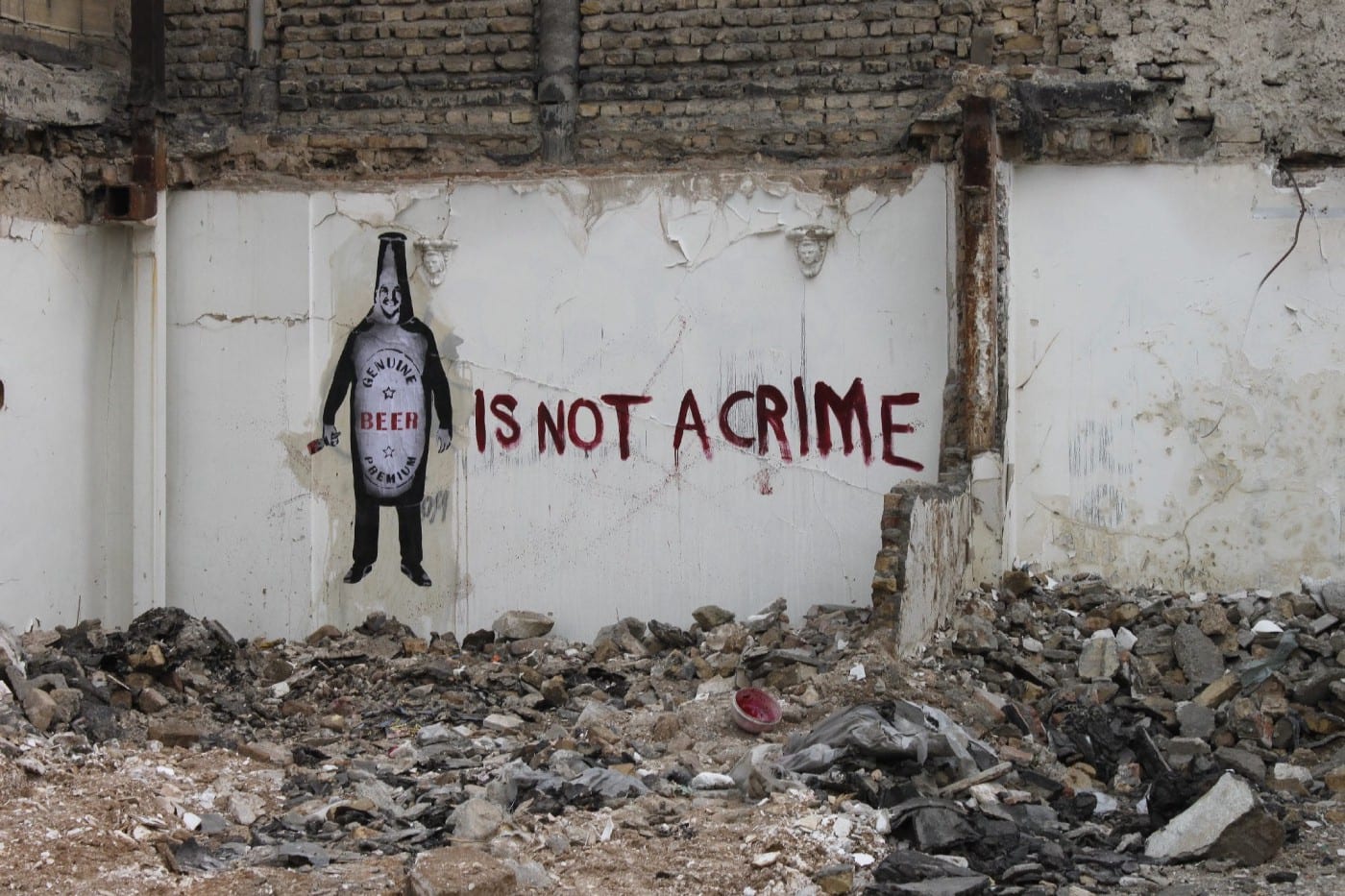
Beer is not a crime — Tehran, Iran
SOT is the easier conversationalist of the two, his speech fast and enthusiastic, while his older brother ICY is more toned down and deliberate in his choice of words. The two of them speak in tandem though, comfortably finishing or adding onto each others sentences, as if they inhibit different corners of the same mind. Talking to them, it’s not hard to imagine them collaborating throughout all stages of their creative process.
“We’d put something up and they’d take it down. That just made us want to go back and make work again”, SOT recalls their early days as stencil artists in Iran. “We’d put it up again and they’d take it down again at the same place.” He laughs at the memory, wholly unimpressed at the danger they faced in a country that scores a 6 on a scale from 1 (most free) to 7 (least free) in the global Freedom in the World index.
“It’s illegal everywhere”, ICY matter-of-factly states about the nature of their chosen medium. “Street art or graffiti is illegal.” Still, he realizes the penalty for the crime is not the same worldwide. “Because there wasn’t any specific law for street art or painting a place, they could charge you with whatever they want. It also depends on who arrests you. There’s secret police, you know.”
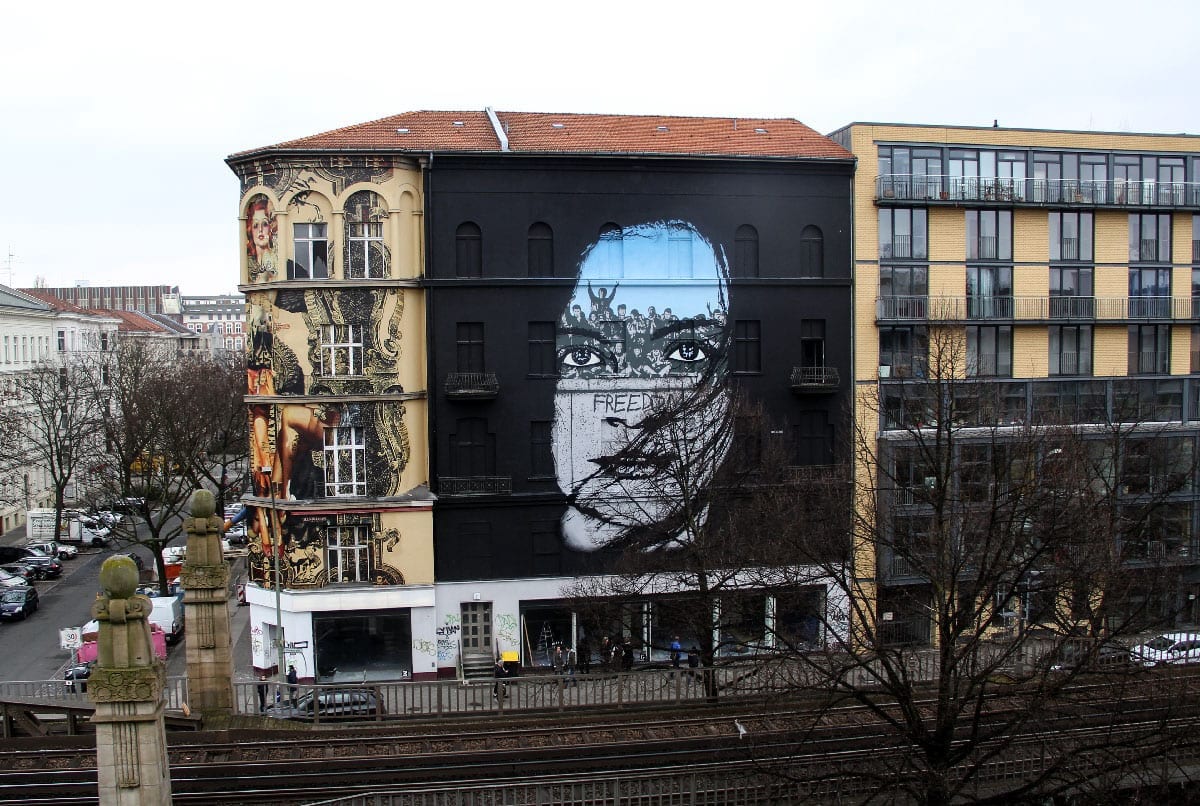
Portrait of Freedom — Berlin, Germany
Compounding the risk even further, is the fact that their work has always contained very overt messages railing against things like censorship, abuse of power and the inequality between men and women. “It’s important for everyone to get the message. Our works are very simple, so everybody can connect”, ICY explains. “We always try to paint it on the streets at first, because it’s for the public.”
That sense of accessibility and their refusal to make unnecessarily obtuse statements, quickly gained them popularity around the world as well. Which made their cat and mouse with the system all the more risky. They enjoyed rankling the Iranian police, but the brothers couldn’t keep pushing their luck much longer. SOT: “We were the lucky ones. We didn’t get into really — we got in trouble, but..” ICY: “We were in jail, but we knew how to deal with these people when we got arrested.”
SOT: “We were good at lying to police.”
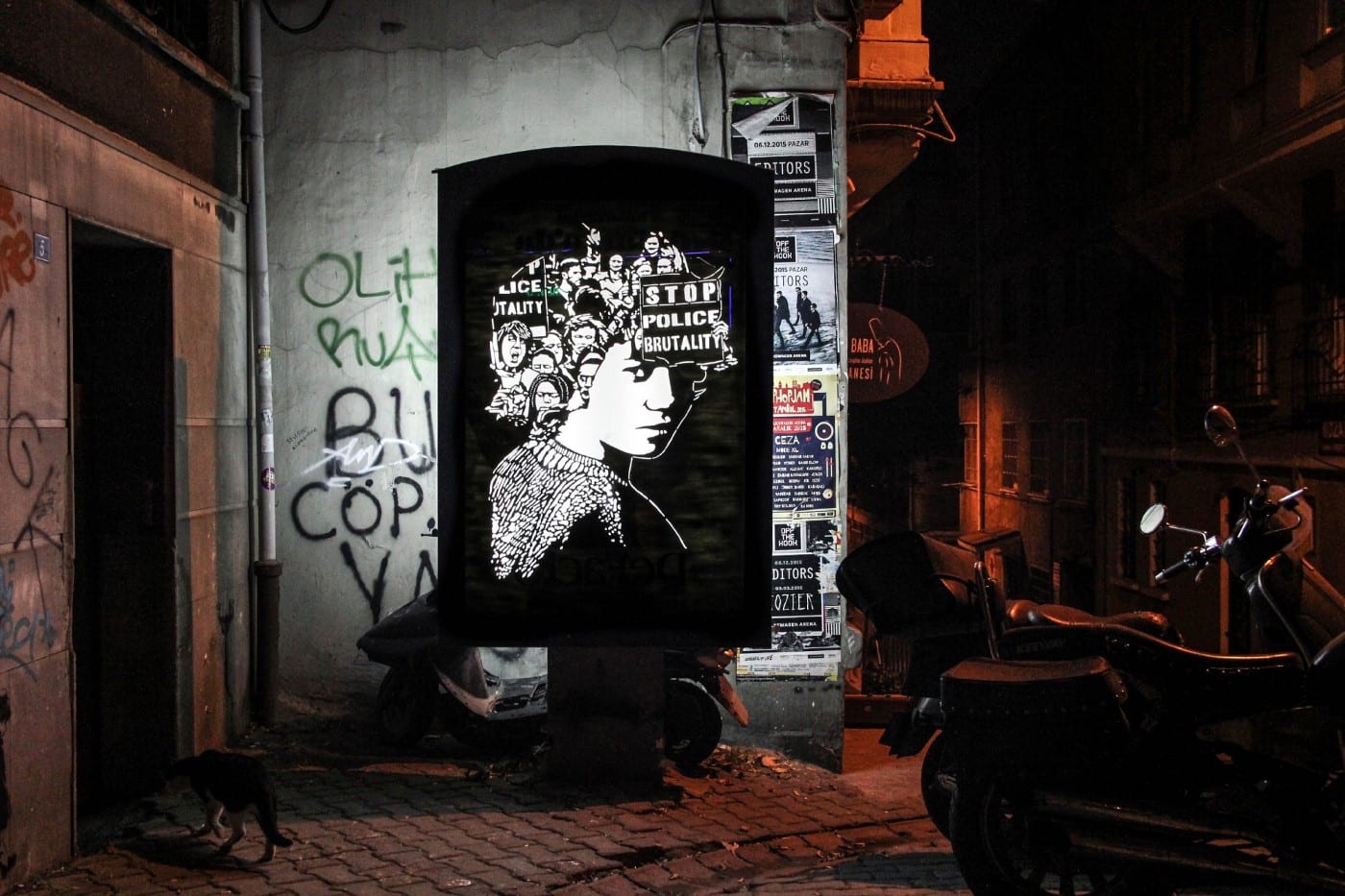
Adtakeover — Istanbul, Turkey
Despite that useful talent, they decided to move to Brooklyn six years ago, where their work has recently grown beyond the stencil art that initially made them famous.
ICY: “A year and a half ago we decided…”
SOT: “…to not limit ourself to anything.”
ICY: “Not to just stencils or flat paintings…”
SOT: “…Or one medium. Be open to use anything.”
“It’s also more exciting, because every time we’re using a new medium, we’re learning. We figure out a way to make it happen”, SOT says. “In the art world, it is kind of hard switching from something. People still want the old work once you’re known for something, but we don’t care. We just make whatever makes us happy. And when we’re happy about it, we can make good work.”
With a huge crumpled dollar bill they deposited on Wall Street, repurposed cages and fences they’ve cut up, and the objects made out of discarded plastic waste made, the brothers have criticized capitalism, the refugee crisis and carelessness of the environment. “I think our work about these issues isn’t going to change the world or anything, but it can start little things”, SOT says. “A little impact on one person is still something. It can start something bigger.”
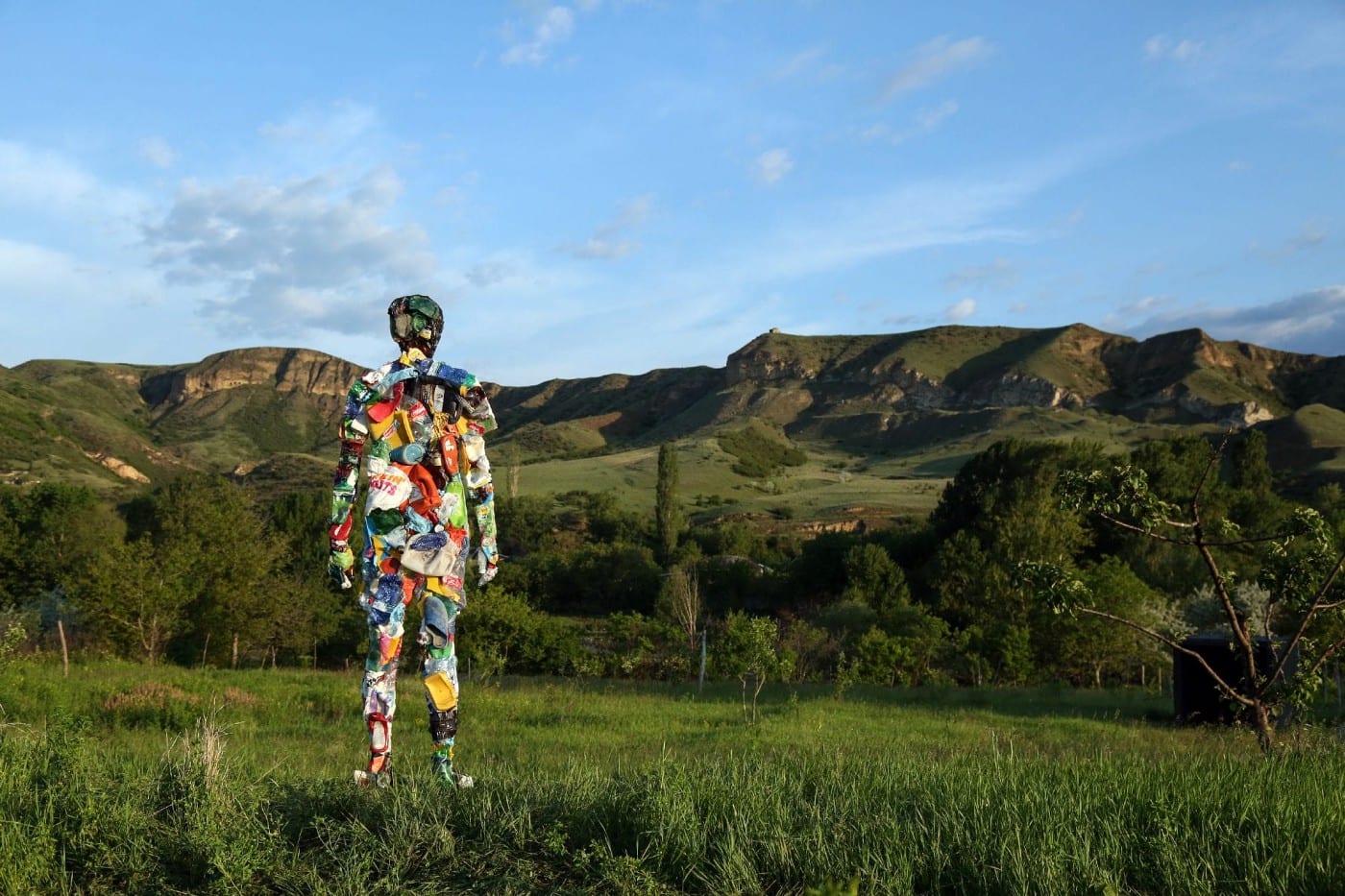
Human reflection on nature — Tblisi, Georgia
SOT: “A piece that we did that had impact — we never saw it happening that quick — was with a sculpture in Georgia. It’s a figure of a man made with plastic trash that was collected as we went there. We passed a river and saw so much plastic trash in there, we both just collected a bunch of the stuff and built a sculpture out of it, facing the river. We had interviews there on TV and stuff, and within two weeks…
ICY: “…they arranged this community that volunteered to clean the river. And they built similar statues and put those around the river.”
SOT: “So people that see that, don’t throw in their trash anymore. We were shocked by the result, to see it happen that quickly, but we’re very happy that they went and did that.”
But it’s not the only change in the world through art the duo have witnessed. The process of gentrification, where less affluent neighborhoods start to become trendy, and the original residents can no longer afford to live there due to rents and property value rising, is often at least partly spurred by the street art originating there. “That’s also one reason why we currently don’t want to paint murals”, ICY says. “There are hotels that bring in street artists to paint their walls, everything is more commercial.”
“Some of these walls are curated by real estate people now, asking artists to paint”, his brother adds with a sense of distaste. It’s something that the brothers are adamant about not wanting to contribute to.
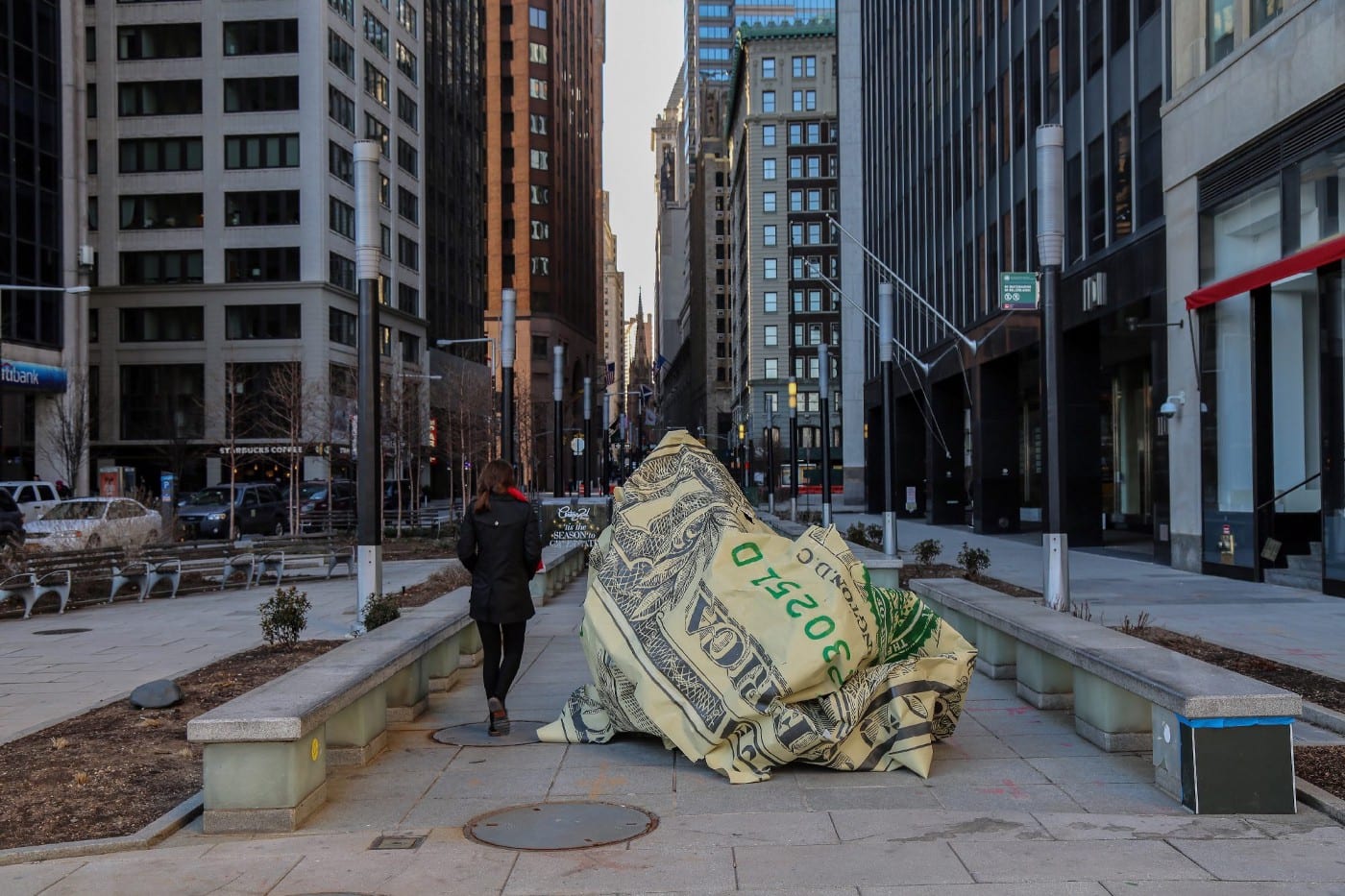
Wall Street, New York
The critical stance the brothers took in their native country against the powers that be, hasn’t been dampened in their adopted homecountry either. They’ve seen the effect of America’s lax gun laws, racial tension and erratic immigration policies all around their community, losing friends to gun violence and seeing others fear losing the home they’ve built. “A good friend’s parent, he works in Canada. He has a green card but never decided to get citizenship”, SOT says. “He used to go there a few times a week, but now he’s scared that if he goes, he won’t be able to come back to his home.”
“One thing about the US is that it was always kind of like that, but people didn’t really see the problems in the country”, SOT says about the perceived increase of racism and xenophobia in America. “These issues were always there, but they’ve become more intense.”
That being said, the brothers have a lot of love for their current home as well. “New York is also the center of art, and new music. So many artists since the ’60s and ’70s have went there”, ICY says. Though even if they did feel out of place there, it’s not like they have any other options left since applying for asylum in the US. ICY: “Our passports expired.” SOT: “We can’t go back to Iran to apply for any paper. We’re basically stateless, because we are not citizens of the US.”
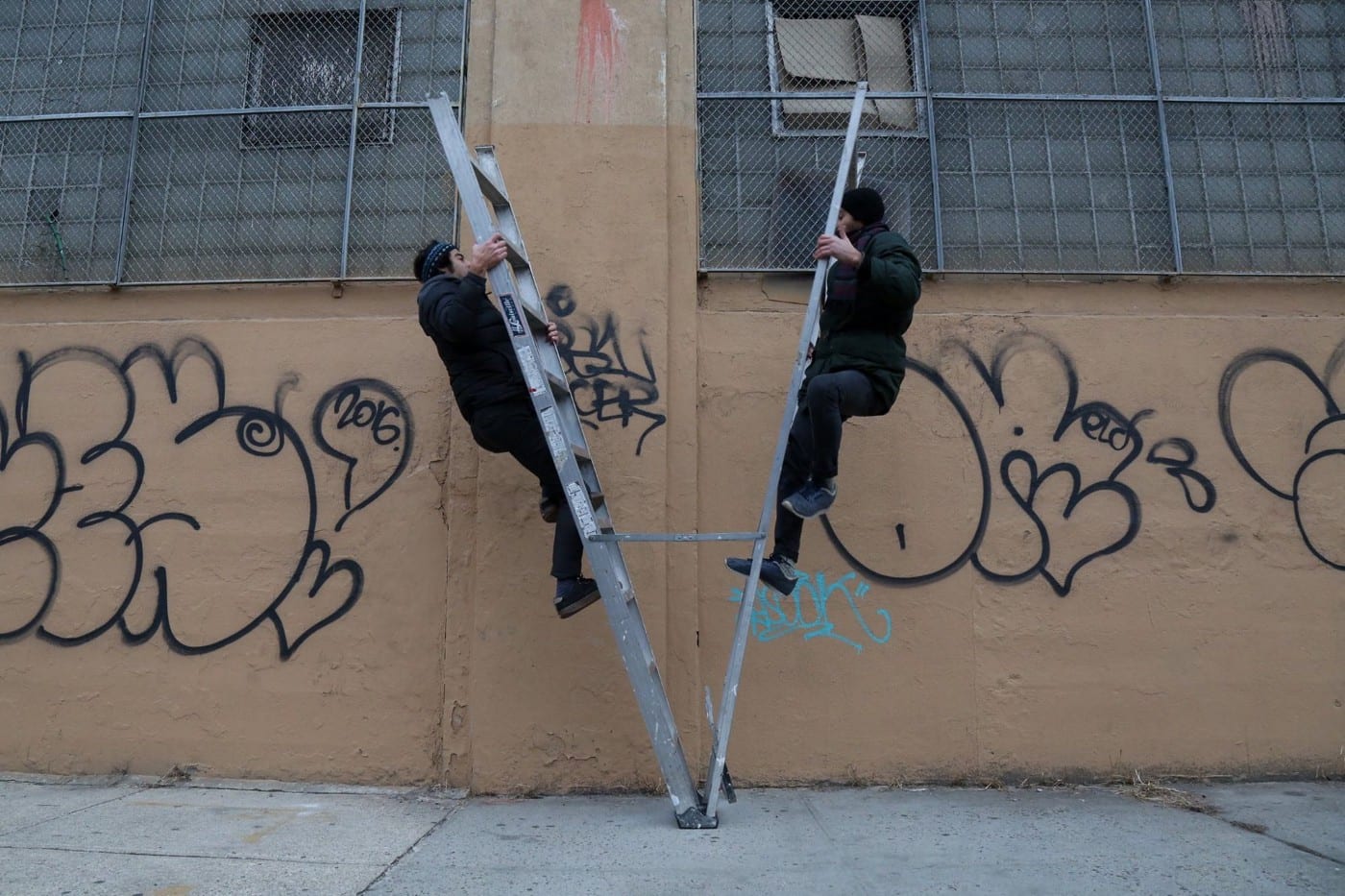
Power of Two — Brooklyn, New York
ICY: “We have a refugee passport. If you travel to other countries or apply for visas, you have that option. We can’t say we’re Iranian, we can’t say we’re American, there’s the option to say you’re a stateless person.”
The themes of freedom in their work may have once been intended as a message for the messages, but seems to have grown into a more personal yearning as well. “It’s only paperwork. We are still Iranian, obviously”, ICY says, though he’s unsure he will ever be able to return to his country. SOT: “Even if we were able to go, we’d just visit.”
“We can’t live there anymore. But we would love to be able to surprise our parents and family, and just show up there”, ICY says, before pausing briefly and adding a wistful amendment to his wish.
“Some day…”